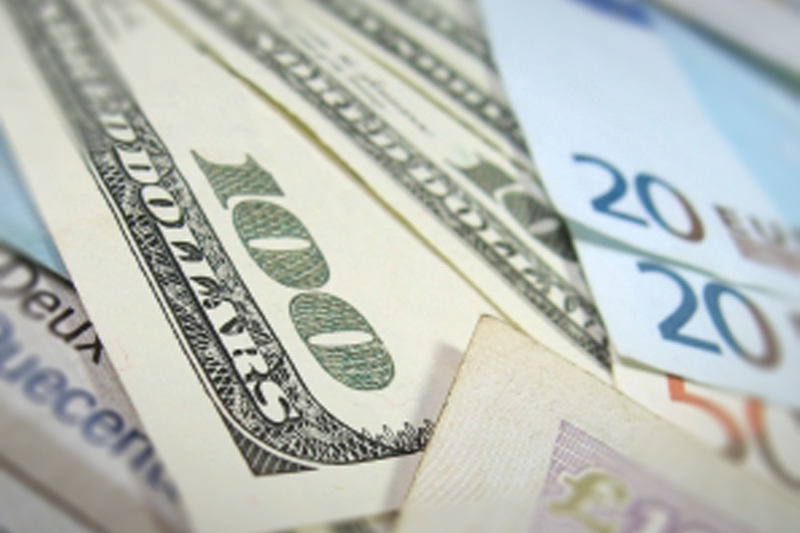Investing.com -- The euro fell to its lowest level against the dollar in the month of May, as a raft of promising U.S. economic data coincided with continuing fears of a Greek exit from the European Union.
EUR/USD fell to an intra-day low of 1.0863, its lowest level since April 28, before slightly rebounding to settle at 1.0879, down 0.0099 or 0.90%. The pair traded in a wide range of 1.0863 and 1.0981 on a choppy day of trading.
The euro has now fallen against its American counterpart in eight of nine sessions and is down more than 4.75% since reaching a three-month high at 1.11467 on May 15.
EUR/USD likely gained support at 1.0789 its low from April 19 and was met with resistance at 1.1156, the high from May 20.
While U.S. durable goods orders fell slightly by 0.5% in April, the decline was less sharp than a projected 0.6% loss by analysts. The figure was tamped down by a 4% decline in commercial airlines and 3.4% dip in computer orders. A reading of core orders, however, which excludes volatile bookings of airplane and auto orders, rose by 0.5% last month, above expectations of a 0.4% gain. Last month's rebound could be attributed solely to a surge in airplane orders after transportation procurements spiked by 15.2%. In March, the core reading fell by 0.2% month-to-month and by nearly 2% on a yearly basis.
Shortly thereafter, the U.S. Department of Commerce said new home sales in April rose 6.8% to a seasonally-adjusted 517,000. The gains fell in line with analysts' forecasts of a 485,000 to 540,000 increase for the month.
Separately, consumer confidence showed signs of stabilizing inching up to 95.4 for the month of May, up 0.2 from a previous reading last month. Analysts expected The Conference Board's monthly Consumer Confidence Index to tick down by 0.1 to 95.1.
The U.S. Dollar Index, which measures the strength of the greenback versus a basket of six other major currencies, jumped more than 1.35% to an intraday high of 97.46, its highest level since April 24 and its largest one-day gain in nearly two years. Investors continued to digest a speech by Yellen last Friday in Providence. In an address to the Greater Providence Chamber of Commerce, Yellen said the Federal Open Market Committee believes that inflation will move toward its targeted goal of 2%, as crude prices continue to stabilize and transitory factors weighing on the economy continue to recede.
Meanwhile, euro zone officials said a group of deputy finance ministers would hold a teleconference on Thursday after the conclusion of several days of talks between Greece and its troika of creditors. Additionally, a senior German official told Reuters there was no reason to believe that Greece would fail to meet a €300 million payment to the International Monetary Fund on June 5. By the end of June, however, Greece owes the IMF three other payments totaling more than €1.262 billion.
Although yields on German 10-Year bunds fell six basis points to 0.54, they are still up 39 basis points on the month. Yields on Italian 10-Year and Spanish 10-Year bonds gained more than eight basis points each to 1.93 and 1.86% respectively. Yields on the U.S. 10-Year Treasuries fell seven basis points to 2.14%. They are now down 40 basis points over the last 52-weeks.
USD/CAD reached a five-week high at 1.2448, before falling slightly back to 1.2431.
USD/JPY surged to an eight-year high at 123.32, soaring more than 1.25% on the session.
